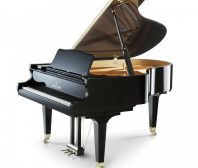What Age to Start Piano Lessons?
If you’ve been thinking about starting piano lessons, you may be wondering when the best time to begin is. While there is no one-size-fits-all answer, there are certain factors to consider when determining the optimal age to start piano lessons. In this post, we will explore these factors and help you make an informed decision about when to begin your musical journey.
Starting Piano Lessons at a Young Age
Starting piano lessons at a young age can have numerous benefits for children. Research has shown that learning to play an instrument, such as the piano, can enhance cognitive skills, improve memory, and boost academic performance. Additionally, it can help develop fine motor skills, hand-eye coordination, and discipline. By starting piano lessons early, children have the opportunity to develop a strong foundation in music and potentially pursue a lifelong passion.
What Age to Start Piano Lessons?
When deciding on what age to start piano lessons, there are several factors to consider. Firstly, it’s important to assess your child’s interest and enthusiasm for music. If they show a genuine curiosity and desire to learn the piano, it may be a good time to start. Additionally, their physical and cognitive development should be taken into account. Younger children may struggle with the physical demands of playing the piano, such as reaching the keys and coordinating their fingers. It’s also important to consider their attention span and ability to focus for longer periods of time. Lastly, scheduling and availability of a qualified piano teacher should be considered. Finding a teacher who can accommodate your child’s schedule and provide quality instruction is crucial for their musical development. That being said, research has shown that the best age to start piano lessons is usually between the ages of 3 and 4 years old.
Motivation & Interest in Learning the Piano
Motivation and interest play a crucial role in the success of learning the piano. When a child is genuinely interested in music and has a strong desire to learn the piano, they are more likely to stay committed and dedicated to their lessons. This motivation will drive them to practice regularly and put in the effort required to improve their skills. Without a genuine interest, piano lessons can become a chore and the child may quickly lose interest and give up. It’s important to foster and nurture their passion for music by exposing them to different genres, attending concerts, and encouraging them to explore their own musical preferences. By ensuring that your child is motivated and interested in learning the piano, you are setting them up for a rewarding and fulfilling musical journey.


